Step One: Ability Scores
Your character has six ability scores that represent his or her most basic attributes. They are his or her raw talent and prowess. While your character will rarely roll a check using just an ability score, these scores, and the modifiers they create, affect nearly every aspect of your character's skills and abilities.
You receive a number of points to spend on increasing your character's basic attributes. All attributes start at a base of 10. You can increase an individual score by spending some of your points. Likewise, you can gain more points to spend on other scores by decreasing one or more of your character's ability scores. No score can be reduced below 7 or raised above 18 using this method.
Campain Type:
The campaign type determines the number of points you can spend on your ability scores. Check with your game master to see what campaign type he or she is using. A standard campaign lets you spend 15 points.
Points Spent: 0/0
Strength
Dexterity
Constitution
Intelligence
Wisdom
Charisma
Strength
Strength measures muscle and physical power. This ability is important for those who engage in hand-to-hand combat, such as fighters. Strength also sets the maximum amount of weight your character can carry.
You apply your character's Strength modifier to:
Dexterity
Dexterity measures agility, reflexes, and balance. This ability is the most important one for rogues, but it's also useful for characters who wear light or medium armor or no armor at all. This ability is vital for characters seeking to excel with ranged weapons.
You apply your character's Dexterity modifier to:
Constitution
Constitution represents your character's health and stamina. A Constitution bonus increases a character's hit points, so the ability is important for all classes.
You apply your character's Constitution modifier to:
Intelligence
Intelligence determines how well your character learns and reasons. This ability is important for wizards because it affects their spellcasting ability in many ways.
You apply your character's Intelligence modifier to:
Wisdom
Wisdom describes a character's willpower, common sense, awareness, and intuition. Wisdom is the most important ability for clerics. If you want your character to have acute senses, put a high score in Wisdom.
You apply your character's Wisdom modifier to:
Charisma
Charisma measures a character's personality, personal magnetism, ability to lead, and appearance. It is important for clerics, since it affects their ability to channel energy.
You apply your character's Charisma modifier to:
Step Two: Race
In fantasy roleplaying games, race is fundamental. It both provides a starting point for character creation and sets the tone for a character as it progresses. Race mixes biology and culture, then translates those concepts into racial traits. A race's traits, its history, its relations with other races, and the culture that all of these things imply—all of these frame your character. This is true whether you play to or against the stereotypes. To some players, choosing a race is simply a matter of finding which racial modifiers best fit a character's class. Yet there's so much more to race than that. By exploring the cultures and traditions of a character's race, we can better understand where she comes from and what makes her tick, thus immersing ourselves that much deeper in the campaign world.
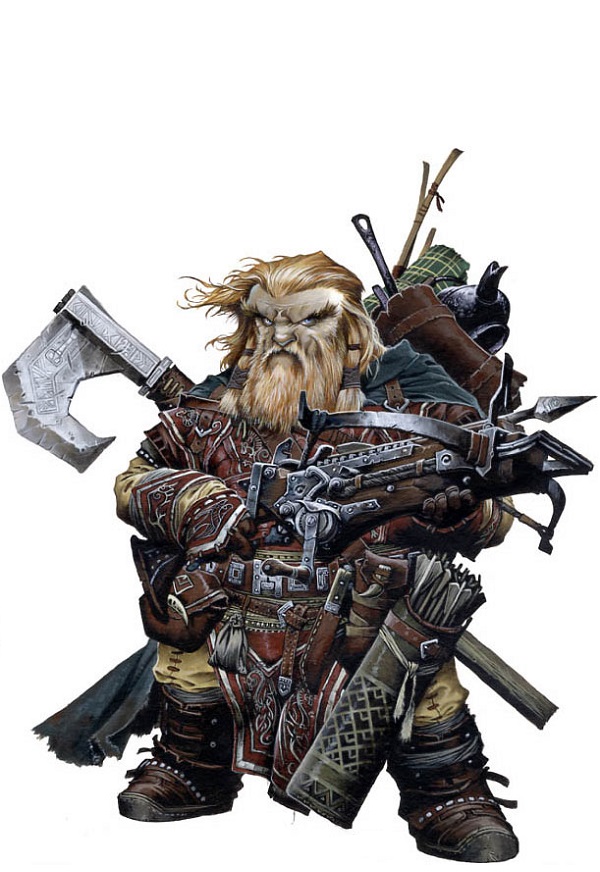
Dwarf
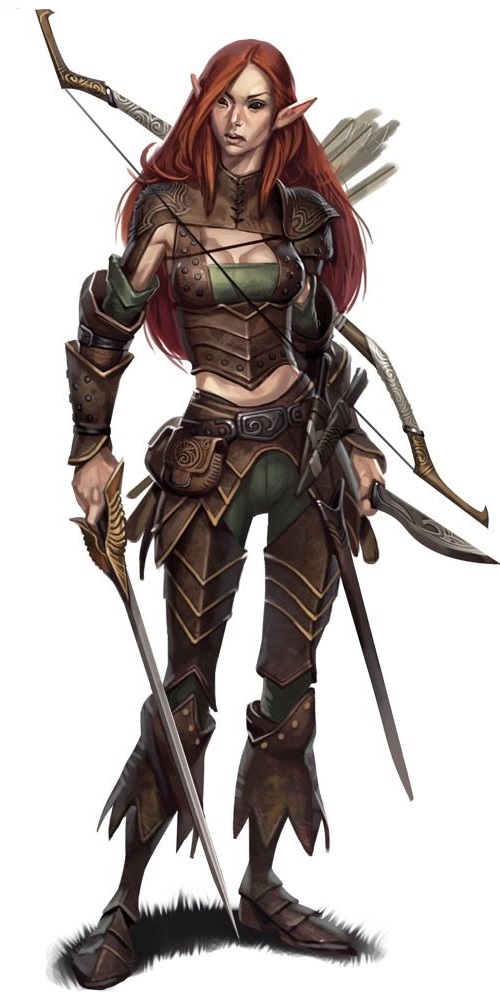
Elf
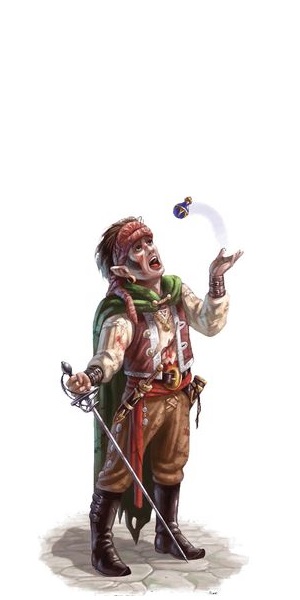
Halfling
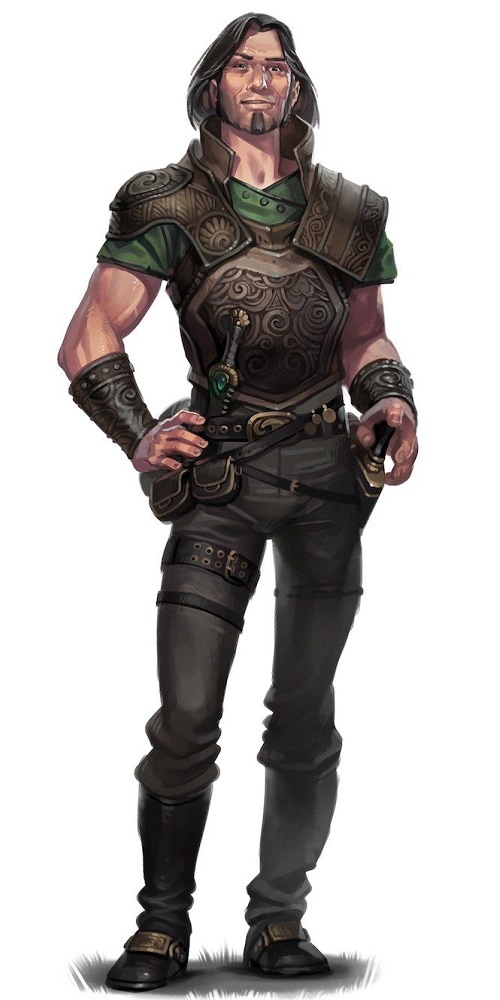
Human
Step Three: Class
In fantasy roleplaying games, race is fundamental. It both provides a starting point for character creation and sets the tone for a character as it progresses. Race mixes biology and culture, then translates those concepts into racial traits. A race's traits, its history, its relations with other races, and the culture that all of these things imply—all of these frame your character. This is true whether you play to or against the stereotypes. To some players, choosing a race is simply a matter of finding which racial modifiers best fit a character's class. Yet there's so much more to race than that. By exploring the cultures and traditions of a character's race, we can better understand where she comes from and what makes her tick, thus immersing ourselves that much deeper in the campaign world.
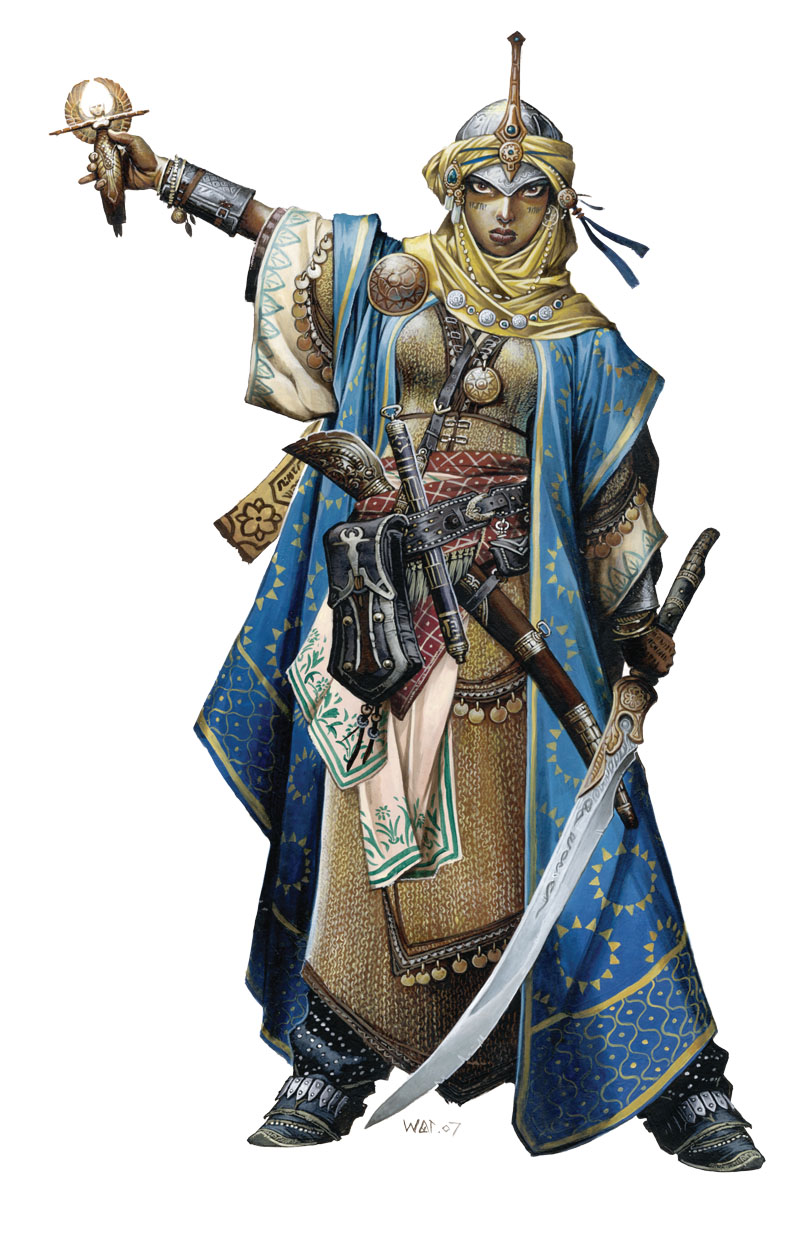
Cleric
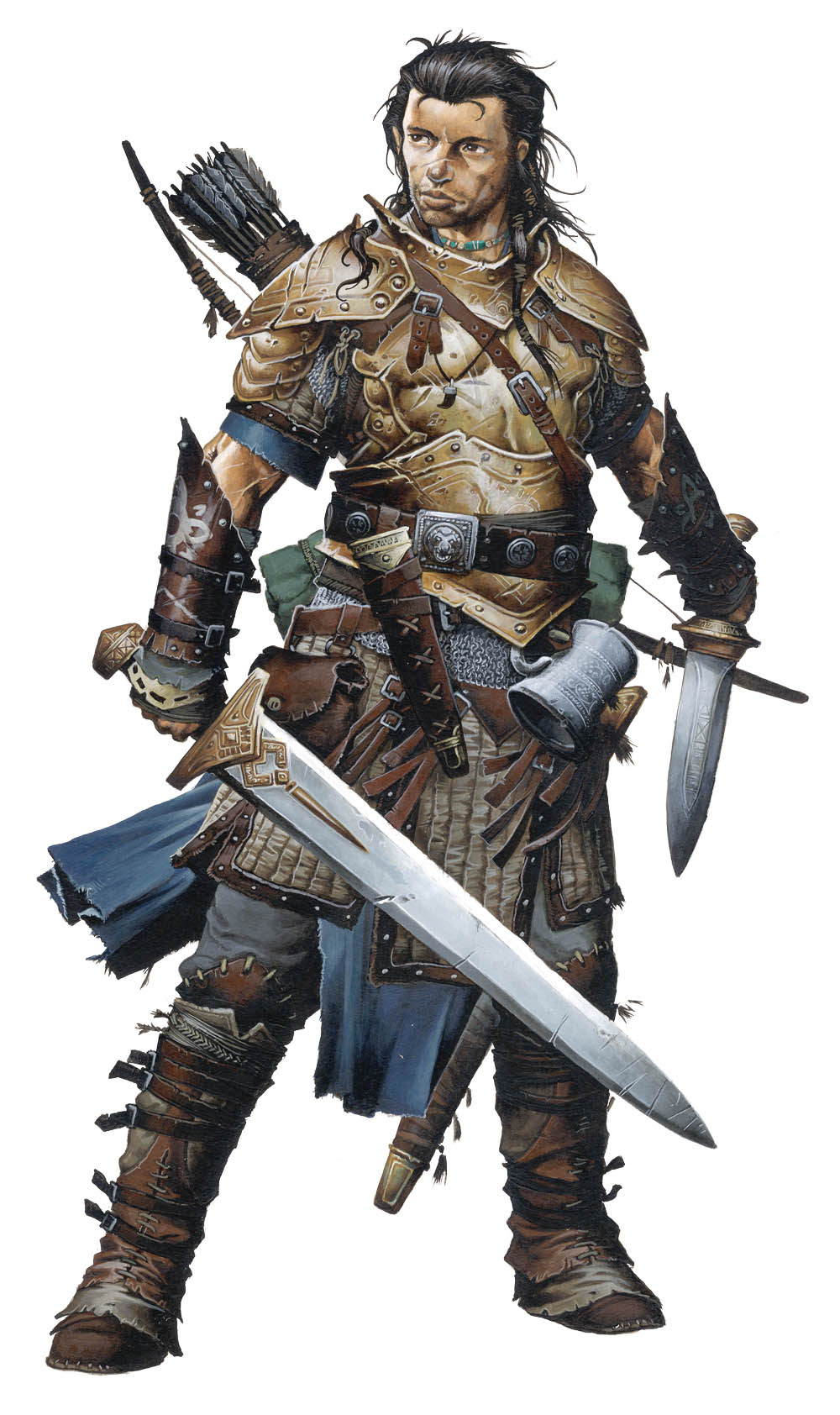
Fighter
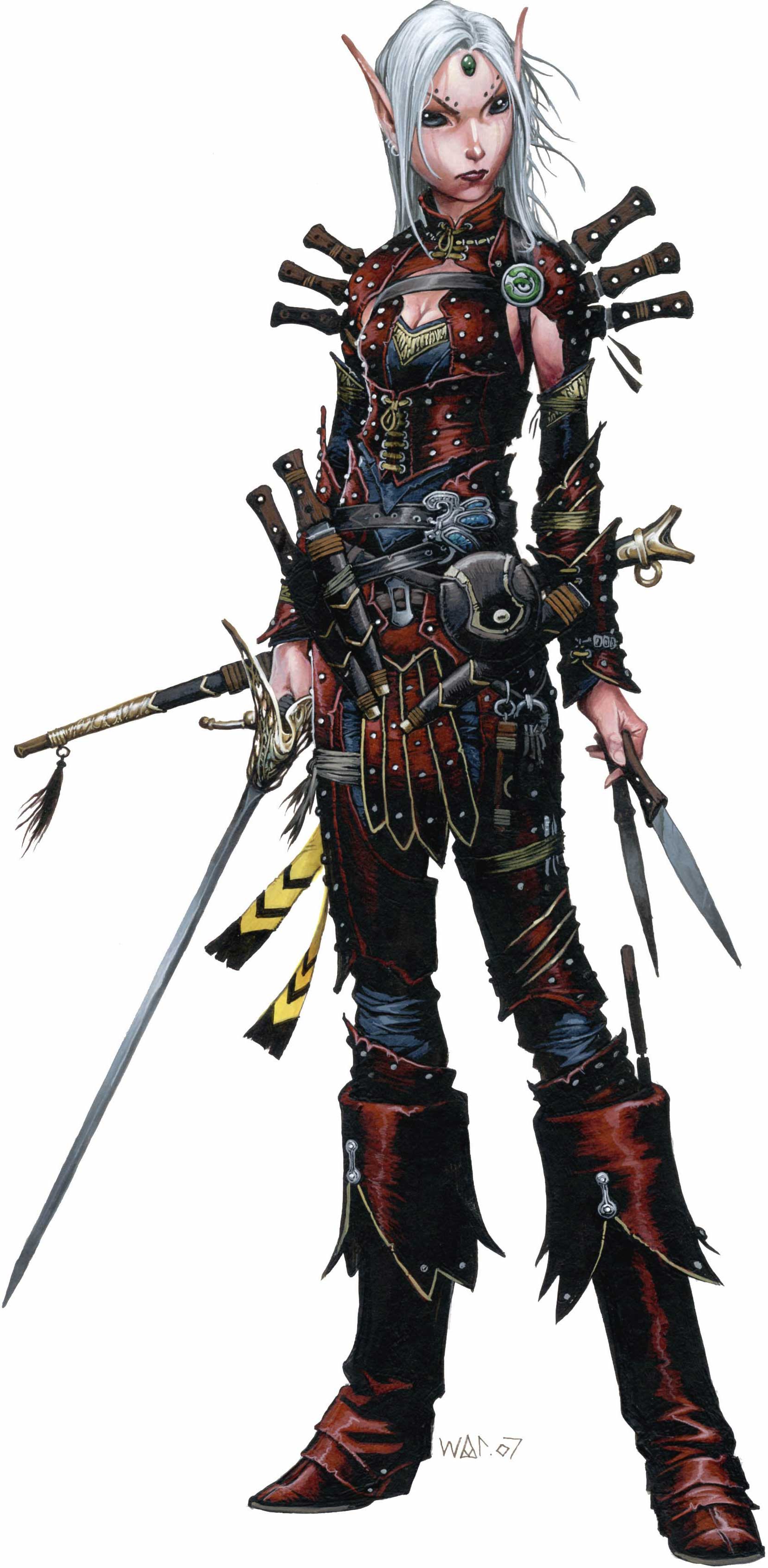
Rogue
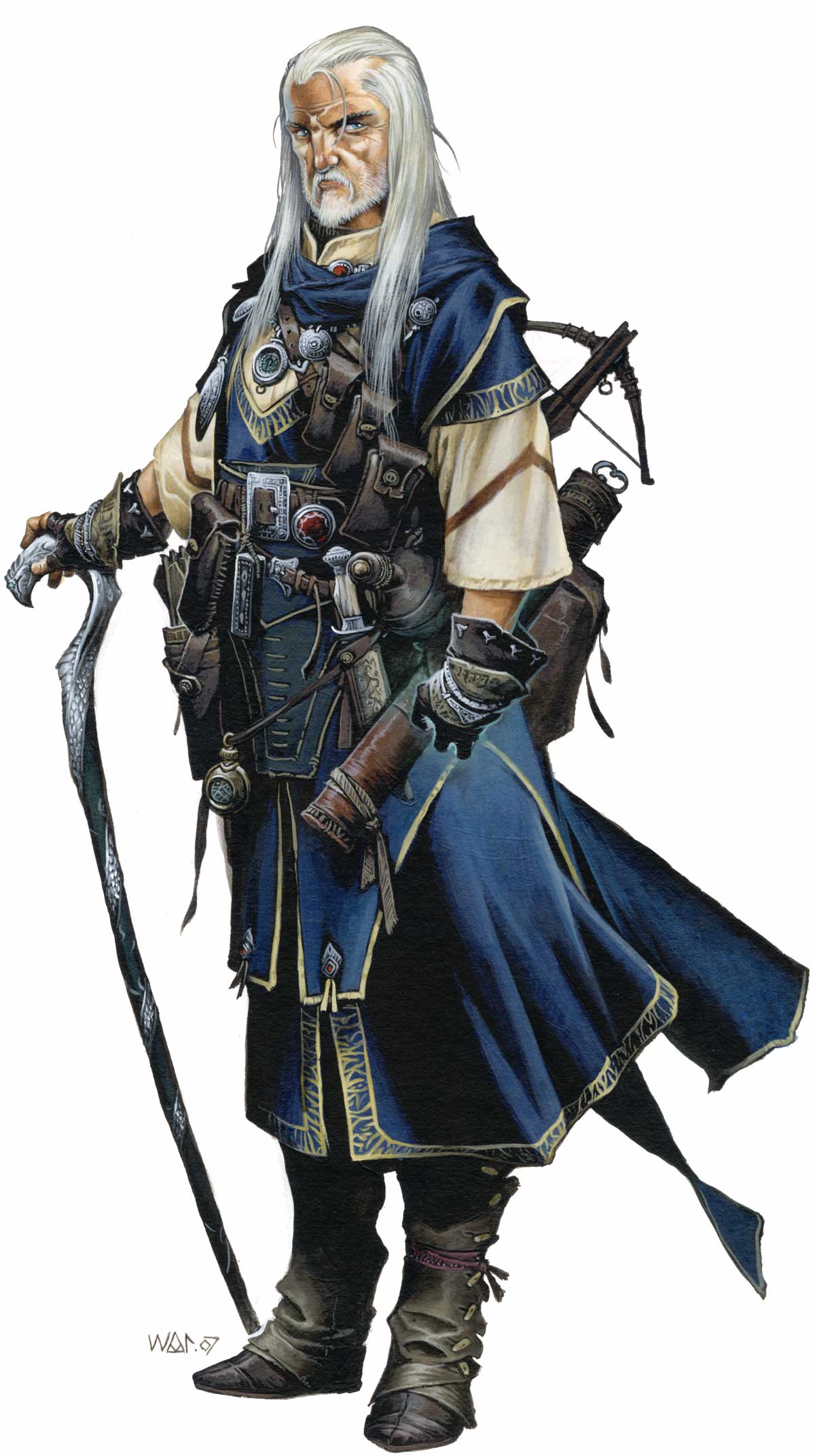
Wizard
Standard Traits
Offensive Traits
Defensive Traits
Magical Traits
Skill Traits
Wizard
These shrewd magic-users seek, collect, and covet esoteric knowledge, drawing on cultic arts to work wonders beyond the abilities of mere mortals. While some might choose a particular field of magical study and become masters of such powers, others embrace versatility, reveling in the unbounded wonders of all magic. In either case, wizards prove a cunning and potent lot, capable of smiting their foes, empowering their allies, and shaping the world to their every desire.
Standard Class Features
Bonus Feat
A fighter gets to select a bonus combat feat during in addition to the other feat(s) gained at level one. This will be done during step five of this character creator.
Sneak Attack
The rogue's attack deals +1d6 extra damage anytime her target would be denied a Dexterity bonus to AC or when the rogue flanks her target.
Trap Finding
+1 to Perception skill checks made to locate traps and to Disable Device skill checks. A rogue can use Disable Device to disarm magic traps.
Channel Energy
Deity
A cleric's deity influences her alignment, what magic she can perform, her values, and how others see her. A cleric chooses two domains from among those belonging to her deity.
God of Justice and Honor
Godess of the Sun and Healing
Godess of Beauty and Art
Godess of Dreams and Travels
God of Alcohol and Freedom
Godess of Lust and Revenge
Domains
Select two of the domains belonging to your deity. Each domain grants a domain power, as well as a bonus spell. A cleric gains one domain spell slot. Each day, a cleric can prepare one of the spells from her two domains in that slot. If a domain spell is not on the cleric spell list, a cleric can prepare it only in her domain spell slot. Domain spells cannot be used to cast spells spontaneously.
Chaos Domain
Your touch infuses life and weapons with chaos, and you revel in all things anarchic.
Touch of Chaos: You can imbue a target with chaos as a melee touch attack. For the next round, anytime the target rolls a d20, he must roll twice and take the less favorable result. You can use this ability a number of times per day equal to 3 + your Wisdom modifier.
Charm Domain
You can baffle and befuddle foes with a touch or a smile, and your beauty and grace are divine.
Dazing Touch: You can cause a living creature to become dazed for 1 round as a melee touch attack. Creatures with more Hit Dice than your cleric level are unaffected. You can use this ability a number of times per day equal to 3 + your Wisdom modifier.
Arcane Bond
Wizards form a powerful bond with an object or a creature. This bond can take one of two forms: a familiar or a bonded object. A familiar is a magical pet that enhances the wizard's skills and senses and can aid him in magic, while a bonded object is an item a wizard can use to cast additional spells or to serve as a magical item.
Familiar
+3 Stealth
+3 Diplomacy
+3 Appraise
Can speak
+4 Initiative
+2 Reflex
+2 Fortitude
+2 Will
+1 AC
Cantrips
Cantrips are level 0 spells. Preprared cantrips can be cast unlimitted times each day. You can prepare three cantrips per day from the following list:
 Dylan Pride
Dylan Pride